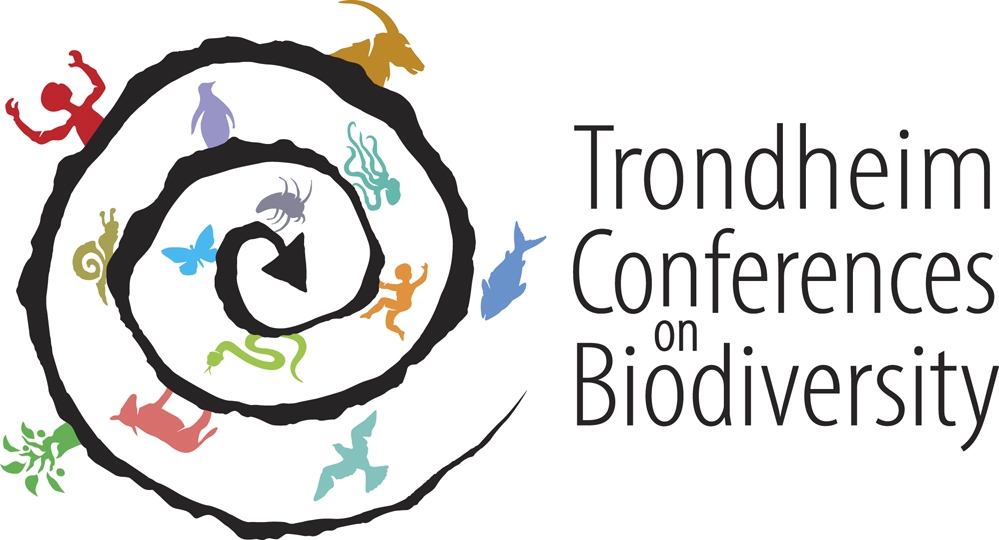Conference co-chairs

Nina Vik
Nina works at the Norwegian Environment Agency, where she is a Senior Adviser working on international conventions and she is National Focal Point for the Intergovernmental Platform for Biodiversity and Ecosystem Services (IPBES). Nina has also worked with risk assessments of genetically modified organisms (GMOs) and the Cartagena Protocol.

Finn Katerås
Finn works at the Norwegian Environment Agency, where he is a senior adviser working primarily with socio-economic considerations related to agency advice and proposals. He has also worked on international co-operation, including the CBD and Arctic co-operation, ecosystem services and protected areas. He co-chaired much of the CBD negotiations leading up to the adoption of the CBD Strategic Plan 2011-2020 and the Aichi targets in Nagoya in 2010.
Session chairs
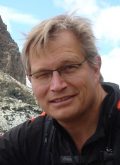
Ivar Baste
Ivar is Senior Advisor in the Norwegian Environment Agency. He was member of the Bureau of the Intergovernmental Platform on Biodiversity and Ecosystem Services (IPBES) from 2013-2019, where he co-chaired a number of its initiatives. He has also held positions such as Director of the UN Environment Management Group Secretariat (EMG), Chief of the Scientific Assessment Branch of UNEP, and Deputy Director General responsible for biodiversity and biotechnology in the Norwegian Ministry of Environment.
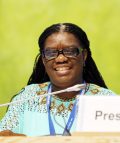
Malta Qwathekana
Malta is Senior Policy Adviser in the Department of Environmental Affairs of South Africa. She coordinates South Africa's participation in different Biodiversity Multilateral Environmental Agreements such as the Convention on Biological Diversity, The Ramsar Convention on Wetlands, the Convention on the Conservation of Migratory Species, The Africa Eurasian Waterbirds Agreement, The Memorandum of Understanding on the conservation of Sea Turtles of the Indian Ocean and South East Asia, the Memorandum of Understanding on the Conservation of Birds of Prey and other international obligations on International Biodiversity Multilateral Environmental Agreements. (Photo IISD/ENB | Francis Dejon)

Ivonne Higuero
Ivonne is Secretary-General for the Secretariat for the Convention on International Trade in Endangered Species of Wild Fauna and Flora (CITES). She is an environmental economist with a career spanning 26 years in international organizations in the area of sustainable development. Ivonne has experience working at the global, regional and national levels, and engaging with stakeholders across the public and private sectors. During her 24 years with the UN, Ivonne has held varied roles managing and overseeing the implementation of programmes of work, managing financial and human resources, and the provision of secretariat services to intergovernmental bodies. With the adoption of Agenda 2030 and the Sustainable Development Goals, Ivonne was responsible for ensuring the alignment of programmes of work to support countries in meeting their international commitments also through cross-sectoral cooperation. Her previous international appointments include the United Nations Economic Commission for Europe (UNECE) and the United Nations Environment Programme (UNEP). She is a national of Panama and holds a Bachelor of Science degree in Biology from the University of Missouri and a Masters’ of Environmental Management Degree in Natural Resource Economics and Policy from Duke University.
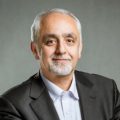
Asghar Fazel
Asghar is President of the ECO Institute of Environmental Science and Technology - ECO-IEST. He holds a B.Sc. in Natural Resources and an M.Sc. in Environmental Engineering both from Tehran University (Iran), as well as a Ph.D. in Environmental Sciences from Azad University (Iran). His professional experience includes working as a Senior Advisor of UNEP’s World Conservation Monitoring Centre (London) since 2008, Deputy Head of Training and Research in the Department of the Environment for the Iranian Government (Tehran) from 2006-7, and Senior Fellow of the University of Environment in Karaj (Iran) since 2010.
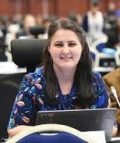
Teona Karchava
Teona is Senior Specialist in the Biodiversity and Forestry Department in the Ministry of Environment Protection and Agriculture of Georgia (Photo IISD/ENB | Francis Dejon)
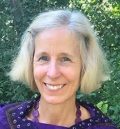
Jane Smart
Dr. Jane Smart OBE leads IUCN’s Biodiversity Conservation Group comprising the Global Species Programme, Global Protected Areas Programme and the World Heritage Programme. She is also Director of IUCN’s Global Species Programme. She is leading the development of the IUCN position on the Post-2020 Global Biodiversity Framework.
Speakers on Tuesday July 1

Ola Lund Renolen
Deputy Mayor of Trondheim (Photo adressa.no)

Henrik Olsen
Council Member, Saami Parliament
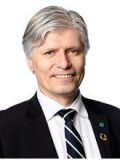
Ola Elvestuen
Minister of Climate and Environment, Norway
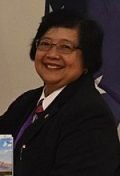
Siti Nurbaya Bakar
Minister of Environment and Forestry, Indonesia

Zhai Qing
Vice Minister of Ecology and Environment, China

Cristiana Paşca Palmer
Cristiana is the UN Assistant Secretary General and Executive Secretary of the UN Convention on Biological Diversity. Prior to this she served as the Minister of Environment, Waters and Forests of the Government of Romania. She was also Head of the Climate Change, Environment, and Natural Resources Unit within the European Commission’s International Development Agency, EuropeAID. She has over twenty years of extensive experience in global policymaking and in coordinating the implementation of environment and sustainable development policies, programmes and projects at the national and international levels. Cristiana
received her PhD in International Relations from The Fletcher School of Law and Diplomacy at Tufts University in the US, and holds a Master in Public Administration from Harvard University’s Kennedy School of Government, in addition to a Master of Science in Systems Ecology and Management of Natural Capital from the University of Bucharest in Romania.
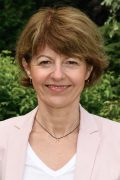
Anne Larigauderie
Anne is the first Executive Secretary of the Intergovernmental Science-Policy Platform on Biodiversity and Ecosystem Services (IPBES). She is the former Executive Director of DIVERSITAS, the international programme dedicated to biodiversity science, under the auspices of ICSU and UNESCO, which became in January 2015, a component of the new Future Earth programme for global sustainability. She received her Master’s Degree in plant molecular biology from the University of Toulouse, France, and her PhD in plant ecology, from the Université des Sciences et Techniques du Languedoc and CNRS in Montpellier, France. As a plant ecologist, she spent ten years performing experimental and field work at different institutions looking, in particular, at how climate change will affect plant physiology and ecology in various contexts.
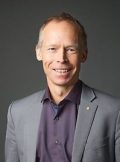
Johan Rockström
Johan is Director of the Potsdam Institute for Climate Impact Research and Professor in Earth System Science at the University of Potsdam. He is an internationally recognized scientist on global sustainability issues, where he led the development of the new Planetary Boundaries framework for human development in the current era of rapid global change. He is a leading scientist on global water resources, with about 25 years of experience from applied water research in tropical regions, and more than 150 research publications in fields ranging from applied land and water management to global sustainability. Johan also acts as an advisor for sustainable development issues at noteworthy international meetings, such as the World Economic Forum, the United Nations Sustainable Development Solutions Network (SDSN) and the United Nations Framework Convention on Climate Change Conferences (UNFCCC). Supplementary, he chairs the advisory board for the EAT Foundation and the Earth League.

Sandra Diaz
Sandra is a Professor of Community and Ecosystem Ecology at Córdoba National University, and a senior member of the National Research Council of Argentina. She founded Núcleo DiverSus on Diversity and Sustainability, and co-founded the Global Communal Plant Trait Initiative TRY. She co-chaired the Global Assessment of the Intergovernmental Platform on Biodiversity and Ecosystem Services. She is a member of the Academies of Science of Argentina, USA, France, Norway and the Developing World, and Foregn Fellow of the Britih Royal Scoiety. She was awarded the Cozzarelli Prize (2008), the Margalef Prize in Ecology (2017), the Senckenberg Award for Nature Research (2019), the Gunnerus Award in Sustainability Science (2019) and the Princess of Asturias (2019). She is interested in plant functional traits and general patterns of functional specialization, their effects on ecosystem properties and their interactions with global change drivers. She constructed the first global quantitative picture of essential functional diversity of vascular plants –the global spectrum of plant form and function- providing a backdrop for evolutionary, ecological and biogeochemical modelling studies. She has advanced theory and practical implementation of the concept of functional diversity and its effects on ecosystem properties and benefits. She combines her plant ecology studies with interdisciplinary work on how different societies value and reconfigure biological communities and ecosystems. (Photo NTNU)
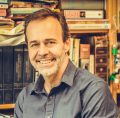
Eduardo S. Brondizio
Eduardo is Distinguished Professor of Anthropology, Department of Anthropology, Indiana University Bloomington, USA, and directs the Center for the Analysis of Social-Ecological Landscapes (CASEL). Brondízio has been working in the Amazon for the past three decades, where he maintains a field-based research program focused on examining household decision-making and landscape change; small-scale farmers interaction with global markets, development programs, and climate change; the formation of rural-urban family networks and its implications for urbanization; and, institutional arrangements and governance of the region’s increasingly complex mosaic of urban, agricultural, indigenous and conservation areas. He is co-editor-in-Chief of Current Opinion in Environmental Sustainability. He is currently the Co-Chair of the Global Assessment on Biodiversity and Ecosystem Services (2016-2019) of the Inter-governmental Platform on Biodiversity and Ecosystem Services (IPBES).

Jeff Price
Jeff Price, Ph.D., works at the Tyndall Centre for Climate Change Research, where he works on the impacts of climate change on biodiversity. As coordinator of the Wallace Initiative he has overseen the modelling of the potential impacts of climate change on 125,000 terrestrial species at warming levels of 1.5 – 6°C. He was a Lead Author on the IPCC 3rd, 4th and 6th Assessment Reports, the Technical Paper on Climate Change and Biodiversity and was a contributing author on the 5th Assessment Report. Jeff was also a member of the CBD Ad-hoc Technical Expert Group on Climate Change and Biodiversity, and contributed to the Stern Review and the U.S. National Assessment.
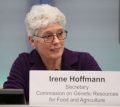
Irene Hoffmann
Irene is Secretary of the FAO Commission on Genetic Resources for Food and Agriculture. Between 2002 and 2015, she was Chief of the Animal Genetic Resources Branch and Chief of the Animal Production Service in FAO. Before joining FAO, Irene was assistant professor at the Institute of Livestock Ecology, Giessen University, where she coordinated several international research programmes, mostly on pastoralism and agro-pastoralism in Africa. She has organized international conferences and published extensively in refereed journals, books and conference papers on scientific and policy topics, and she has served in various scientific advisory committees and review panels.
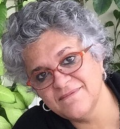
Izabella Teixeira
Izabella works as Co-chair at the UN Environment International Resource Panel (UNEP-IRP). She is also the former Minister of the Environment in Brazil (2010-2016). Head of the Brazilian Delegation on negotiations of the Paris Agreement of the UN Convention on Climate Change (2015) and of the Nagoya Protocol (2010). Champions of the World award for Policy Leadership of the United Nations Environment Program (2013).

Jake Rice
Jake is retired from Fisheries and Oceans Canada, where he continues as the Chief Scientist – Emeritus. He has worked extensively on the science – policy interface for conservation and sustainable uses of the oceans– emeritus. His recent roles have included coordinator of the Biodiversity Section of World Ocean Assessment I, and Co-chair of the IPBES Regional Assessment for the Americas.

Inger Andersen
Inger was appointed Executive Director of the United Nations Environment Programme in February 2019. Between 2015 and 2019, she was the Director General of the International Union for Conservation of Nature (IUCN). She brings to UNEP a passion for conservation and sustainable development with more than 30 years of experience in international development economics, environmental sustainability and policy-making, as well as in designing and implementing projects and generating on-the-ground impact. She has played a key role in supporting riparian countries on international water management and hydro diplomacy. Prior to joining IUCN, Ms Andersen held various leadership roles at the World Bank and United Nations. Her educational background includes a BA from London Metropolitan University North and a MA degree from the School of Oriental and African Studies at the University of London with specialisation in development economics.

Mike Barrett
Dr. Mike Barrett is Executive Director for Science & Conservation at WWF-UK. Beginning his career as a hydrogeologist working in water in sanitation, he then moved to the civil service working across Defra and HM Treasury with a focus on biodiversity, international forestry, and climate change policy. In Government, Dr Barrett was seconded to the Prime Minister’s Commission for Africa in 2004-5, and was an EU delegation negotiator at the Nagoya COP in 2010 and managed the Defra Ministerial offices from 2010 to 2013 before joining WWF-UK. At WWF-UK, Dr Barrett is a lead author on the biennial Living Planet Report and leads on the delivery of the organization’s new strategy aimed at bending the curve to a future where nature’s vital signs are improving.
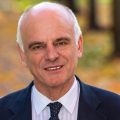
David Nabarro
Professor of Global Health, Institute of Global Health Innovation, Imperial College London, Strategic Director, 4SD Leadership Mentoring, and co-facilitator for the nature-based solutions workstream for the UN Secretary General’s Climate Action Summit
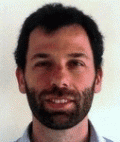
Piero Visconti
Piero Visconti is a Research Scholar with the Ecosystem Services and Management program (ESM) at IIASA and an honorary research fellow with the Centre for Biodiversity and Environment Research, UCL, and the Institute of Zoology of the Zoological Society of London as well as an Academic Visitor with the University of Cambridge Conservation Science Group. He co-supervises PhD students at each of these institutions.
Speakers on Wednesday July 3.

Pepik Henneman
Taken by the concept of sustainability he developed the groundworks for his vision and practice at Schumacher College (MSc Holistic Science 2001). In 2000, Pepik founded the consultancy ‘Innovaders’ from which he advised organizations on sustainable business. In 2006 he became affiliated with the Dutch Research Institute for Transitions (DRIFT) at Rotterdam Erasmus University and through Meneer de Leeuw he is still involved in several DRIFT projects.

Sol Ortiz García
Sol is General Director on Climate Change in the Agriculture Sector in the Ministry of Agriculture and Rural Development (SADER) in Mexico.

Peter White
Peter is WBCSD’s Ambassador for Biodiversity and CBD COP15, having been the Chief Operating Officer at the World Business Council for Sustainable Development for the previous five years. He is working to help bring the business voice to COP15 and other key Nature events in 2019-2020, through the developing Business for Nature Coalition. Before WBCSD, Peter spent 22 years developing, and then leading the sustainability program at Procter & Gamble.

Bob Scholes
Bob is Professor of Systems Ecology at the Global Change Institute, University of South Africa. His research interest is African ecosystems, especially savannas, and he is widely published and cited in fields ranging from global change to biodiversity conservation to Earth observation. He has led several large environmental assessments, nationally and internationally, the most recent being the IPBES Land Degradation and Restoration Assessment.

Bernardo Strassburg
Bernardo Strassburg is the founder and executive director of the International Institute for Sustainability and Assistant Professor at the Pontifical Catholic University, both at Rio de Janeiro. An economist by training, he has a PhD in Environmental Sciences from the University of East Anglia (UK). He works on research, policy development and implementation support for sustainable solutions related to land, reconciling conservation, restoration and sustainable agriculture. Focused on synergies between the three Rio Conventions and the SDGs, he also designed the first international REDD+ incentive mechanism and co-developed Brazil’s national restoration plan. Bernardo is a Lead Author of the Global Assessment and the Values Assessment, both of the Intergovernmental Platform on Biodiversity and Ecosystem Services. Bernardo led the first global analysis of priority areas for restoration, covering all biomes and their associated outcomes for climate change mitigation and biodiversity conservation. Its associated tool is already supporting national and local scale restoration policy and implementation.

Aleksandar Rankovic
Aleksandar is Senior research fellow / Coordinator on Post-2020 International Biodiversity Governance / Lecturer at Sciences Po, Institute for Sustainable Development and International Relations. His work focuses on interactions between environmental science and policy, in particular for biodiversity and climate issues. His current research deals especially with the future of the Convention on Biological Diversity, IPBES, ocean-climate relations and nature-based solutions.
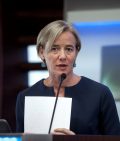
Vera Agostini
Vera is Deputy Director of the Fisheries and Aquaculture Policy and Resources Division, Food and Agriculture Organization of the United Nations - FAO. Prior to joining FAO, Vera Agostini previously served in a number of roles at The Nature Conservancy (Director of Science, Director of Climate Adaptation and Senior Scientist). Dr. Agostini is a fisheries scientist by training, who has held positions across three sectors: non-governmental, governmental, and academic/educational.
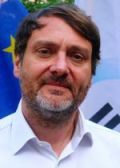
Luc Bas
Luc Bas is the Director of the IUCN European Regional Office in Brussels, representing IUCN towards the EU Institutions and providing leadership and guidance for all activities undertaken by IUCN Government and NGO members within the European context. This includes informing decisionmaking through IUCN’s knowledge on topics such as the 2030 Agenda for Sustainable Development, Red Lists, Protected Area management, Natural Capital and promoting the use of nature-based solutions across different sectors. Prior to this, Luc was European Director of The Climate Group in Brussels, working with business and government to reach more ambitious EU climate policies and prepare for a true energy transition. As International Director of The Climate Group’s States and Regions Alliance, he established one of the most significant networks of sub-national governments leading on tackling climate change. Luc worked as adviser on international sustainable development policies for both the Belgian Federal and Flemish Governments, representing them at the UN Commission on Sustainable Development (SD), the OECD national SD expert panel, the Belgium Federal Council on SD, as well as at various networks of subnational governments. Luc holds a Master’s degree in industrial engineering and postgraduate degrees in both environmental science and international politics.

Fabrice DeClerck
Fabrice is the EAT Science Director. In this role Fabrice leads the development of EAT research and synthesis science. With the Stockholm Resilience Center, EAT’s Science Secretariat, he works closely with EAT partners and programs as the interface between science and practice. Fabrice’s professional background is in agricultural and environmental sciences with more than a decade focusing on sustainable development in Latin America, Africa, and South East Asia. His collaborations with the health and nutrition community date back to 2004 focusing on dietary and environmental health in the Sustainable Development Goals. Fabrice maintains a role as Sr. Scientist at Bioversity International, a member center of the CGIAR.

Holger Robrecht
Holger is Deputy Regional Director, European Secretariat, ICLEI – Local Governments for Sustainability. He is member of ICLEI’s Board of Directors and leads the Sustainable Resources, Climate & Resilience team. He is a renowned expert for urban planning, local environmental and sustainability management, resource efficiency, adaptation and management of ecosystem services. He has vast experience in development and co-ordination of international and European projects and has been member of many Expert Groups, incl. ISO TC268 Sustainable Development of Communities, EU Adaptation Steering Group (2010-2013) and EU Expert Group for the Soil Thematic Strategy (2003).
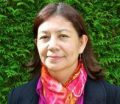
María Rivera
María is Senior Advisor for the Americas in the Secretariat for the Convention on Wetlands - Ramsar Convention. In recent years she has contributed to the implementation of the Convention in the Neotropics, both in her position as Technical Officer at CREHO, the Ramsar regional initiative office in Panamá, and before that in her work at the Ministry of the Environment in Colombia. María received a Bachelors degree in Biology and Chemistry from the Universidad Libre de Colombia, and a Masters in Natural Resources Management from the Ezequiel Zamora National University, Venezuela.
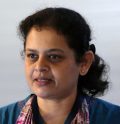
Suneetha M Subramanian
Suneetha is currently affiliated with the United Nations University-International Institute for Global Health. She has more than 15 years of experience in international and sub-national research and capacity building activities relating to biodiversity and human well-being with a specific focus on equity, traditional knowledge, coherence of policy goals to local priorities and community well-being, and joint implementation of policies and actions on Health and Biodiversity at the community level. More recently, she has been involved in various assessments of IPBES (Regional, Global and currently Values), both as an expert and in supporting processes relating to uptake of IPBES deliverables.

Anne Nuorgam
Anne is an expert member and the current chair of the United Nations Permanent Forum on Indigenous Issues. She is a long-term Saami politician, who holds a Master of Laws degree and is a currently a PhD student at the University of Lapland. She has been a member of the Saami Parliament of Finland since 2000 and is also head of the Saami Council’s Human Rights Unit.

Keping Ma
Keping is Professor at the Institute of Botany in the Chinese Academy of Sciences. He is one of the Chinese scientists who initiated biodiversity research in China in early 1990s. In collaboration with other colleagues, he initiated the establishment of CForBio, digitization of specimens in China, set-up of CVH, Catalogue of Life-China and EOL-Chinese Regional Center. He has served on thematic issues as a scientific advisor to Chinese delegation and participated in evaluations on many nature reserves and national parks in China.
Speakers on Thursday July 4.
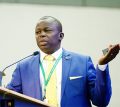
Francis Ogwal
Natural Resources Management Specialist, National Environment Management Authority - NEMA, Uganda, and co-chair of the CBD open-ended intersessional working group on the post-2020 global biodiversity framework - OEWG. (Photo IISD/ENB | Francis Dejon)
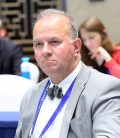
Basile van Havre
Director General Domestic and International Biodiversity Policy, Canadian Wildlife service - Environment Canada, Canada, and co-chair of the CBD open-ended intersessional working group on the post-2020 global biodiversity framework - OEWG
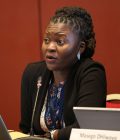
Mphatso Martha Kalemba
Principle Environmental Officer (Biodiversity), Environmental Affairs Department, Ministry of Natural Resources, Energy and Environment, Malawi. (Photo IISD/ENB | Kiara Worth)
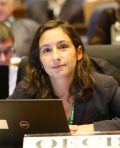
Katia Karousakis
Katia works in the Environment Directorate at the Organisation for Economic Co-operation and Development (OECD), where she leads the programme on Biodiversity, Land Use and Ecosystems (BLUE). Her work focuses on the economics and policy of biodiversity, covering areas such as effective design of policy instruments, biodiversity finance and mainstreaming. Most recently, she led the OECD report Biodiversity: Finance and the Economic and Business Case for Action, prepared for the G7 Environment Ministers’ meeting in May 2019. An environmental economist by training, Katia has a PhD from UCL, London, and a Masters’ degree from Duke University, USA. (Photo IISD/ENB)

Verona Collantes-Lebale
Verona works at the United Nations Entity for Gender Equality and the Empowerment of Women (UN Women), where she serves as the focal point for the UNFCCC, UNCCD and CBD. In this capacity, she provides technical and substantive support to governments and other stakeholders to enhance understanding on the gender dimensions of climate change, biodiversity and land degradation and drought. In recent years, Verona’s work focused on building knowledge and understanding on biodiversity and land degradation neutrality through publications and submissions as well as facilitating workshops and expert meetings for focal points of the biodiversity desertification conventions.
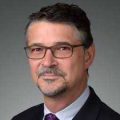
Norbert Baerlocher
Head Rio Conventions, Federal Office for the Environment, Switzerland, and co-chair of the Consultation Workshop of Biodiversity-related Conventions on the Post-2020 Global Biodiversity Framework, held 10-12-June 2019 in Bern, Switzerland

Malta Qwathekane
Malta is Senior Policy Adviser in the Department of Environmental Affairs of South Africa. She coordinates South Africa's participation in different Biodiversity Multilateral Environmental Agreements such as the Convention on Biological Diversity, The Ramsar Convention on Wetlands, the Convention on the Conservation of Migratory Species, The Africa Eurasian Waterbirds Agreement, The Memorandum of Understanding on the conservation of Sea Turtles of the Indian Ocean and South East Asia, the Memorandum of Understanding on the Conservation of Birds of Prey and other international obligations on International Biodiversity Multilateral Environmental Agreements. She was co-chair of the Consultation Workshop of Biodiversity-related Conventions on the Post-2020 Global Biodiversity Framework, held 10-12-June 2019 in Bern, Switzerland. (Photo IISD/ENB | Francis Dejon)

Hamdallah Zedan
Hamdallah Zedan is Senior Adviser to the Minister of Environment, Egyptian Presidency of the Convention on Biological Diversity. He held various positions with United Nations and Cairo University. He is the former UN Assistant Secretary General/ Executive Secretary of the Biodiversity Convention and former Director of UNEP’s Biodiversity programme. He is Emeritus Professor of Microbiology and Immunology, Cairo University and was the Chairman of the National Preparatory Committee of the 2018 United Nations Biodiversity Conference (CBD/COP 14, Sharm El Sheikh, Egypt).
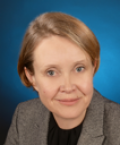
Kerstin Stendahl
Kerstin is IPCC Deputy Secretary, and works at the Secretariat of the Intergovernmental Panel on Climate Change in Geneva. Previous UN jobs include Deputive Executive Secretary for the Basel, Rotterdam and Stockholm Conventions (chemicals and hazardous waste treaties) and Junior Professional Officer at the CBD Secretariat (a long time ago). She was a lead negotiator for Finland during the Rio+20 process and has worked on international environmental governance reform within UN Environment processes as well as on synergies among multilateral environmental agreements. She was the Secretary of the Nordic Genetic Resources Council for many years, working on access and benefit-sharing issues.

Akanksha Khatri
Akanksha works at the World Economic Forum, where she is Head of Biodiversity Initiative and responsible for the Nature Action Agenda. The Nature Action Agenda is a multistakeholder effort aimed at catalysing momentum in the run up to UN CBD COP15 in China and more importantly beyond. The Nature Action Agenda has three key action tracks including a Champions group, a New Nature Economy Report and Business 4 Nature.
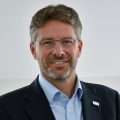
Neville Ash
Neville is the Director of the UN Environment World Conservation Monitoring Centre. He has been with UN Environment since 2010, most recently as Deputy Director of UN Environment’s Division of Environmental Policy Implementation. Neville led UN Environment’s work on biodiversity, including the process to establish the Intergovernmental Platform on Biodiversity and Ecosystem Services (IPBES), and UN Environment’s work to address illegal wildlife trade. Previously he was Head of IUCN’s Ecosystem Management Programme. Neville was also Head of Ecosystem Assessment at UN Environment World Conservation Monitoring Centre, overseeing a range of international monitoring and assessment initiatives. He has spent time researching and managing conservation initiatives in Asia and Africa, and has considerable experience working with a range of international policy processes.
Speakers on Friday July 5.

Carlos Manuel Rodríguez Echandi
Carlos is Minister of Environment and Energy of Costa Rica. He is a Costa Rican environmental lawyer and conservationist. He is a founder of the environmental movement in Costa Rica and has being Director of the National Park Service, Vice Minister and twice Minister of Environment and Energy. Before being appointed in 2018 as Minister he worked 12 years at Conservation International as Vice President for International Policy.
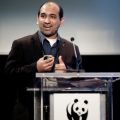
Sudhanshu (Suds) Sarronwala
Suds’ role at WWF International includes working with an amazing team across brand, media and digital communications efforts - to build a strong WWF Network that can engage and influence stakeholders and constituents in the quest to drive WWF’s mission and contribution to the global environmental agenda – to build a world where humans live in harmony with nature. As part of the role, he also has responsibility for Earth Hour.
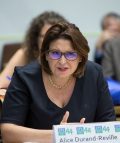
Alice Durand-Reville
Alice was appointed Corporate Public Affairs Director for Danone in 2015. She is responsible for the animation and development of Danone's relations with international public authorities, especially strong global organizations and UN-bodies. Aligned with Danone's mission to "bring health through food to as many as possible" and Danone's new signature "one planet, one health" Alice has developed a strong knowledge in the areas of sustainability, nutrition, sustainable agricultural practices and supply chains and gender equality. She is a member of the UN Global Compact expert network.
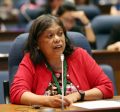
Joji Cariño
Joji Cariño is a Senior Policy Advisor with the Forest Peoples Programme, and served as Director of Forest Peoples Programme from 2013-2016. She has been an active campaigner and advocate over the past 35 years on indigenous peoples human rights at community, national and international levels. (Photo IISD/ENB | Franz Dejon)
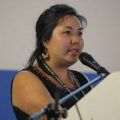
Melina Sakiyama
Brazil, Global Youth Biodiversity Network - GYBN (Photo IISD/ENB | Kiara Worth)
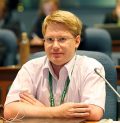
Christian Schwarzer
Germany, Global Youth Biodiversity Network - GYBN (Photo IISD/ENB | Franz Dejon)

Jamison Ervin
Jamison works at the United Nations Development Programme, where she leads the Nature for Development Programme. Jamison’s work focuses on the intersection of nature and the Sustainable Development Goals, on the role of indigenous peoples and local communities in implementing nature-based solutions, and in capacity building for biodiversity practitioners on a range of issues related to the nature-development nexus.

Mark Zimsky
Mark is the Biodiversity Focal Area Coordinator at the Global Environment Facility (GEF). He also serves as the Regional Coordinator for Latin America overseeing GEF investments across all GEF’s focal areas in the region. He has more than 30 years’ experience in more than 40 countries designing and implementing biodiversity conservation and natural resources management projects for national, regional and global-level execution.

Meriem Bouamrane
Meriem is an environmental economist, programme specialist in the Division of Ecological and Earth Sciences, Man and the Biosphere programme. She is the UNESCO focal point for Biodiversity, IPBES and Future Earth. She is responsible for research and training programmes on access and use of biodiversity, participatory approaches and concertation, using biosphere reserves as research and demonstration sites. She is involved in several research programmes on resilience of socio-ecological systems and participatory methodology, and is member of the PECS (Programme on Ecosystem change and Society) Scientific Committee hosted by the Stockholm Resilience Centre.

Francis Ogwal
Natural Resources Management Specialist, National Environment Management Authority - NEMA, Uganda, and co-chair of the CBD open-ended intersessional working group on the post-2020 global biodiversity framework - OEWG. (Photo IISD/ENB | Francis Dejon)

Basile van Havre
Director General Domestic and International Biodiversity Policy, Canadian Wildlife service - Environment Canada, Canada, and co-chair of the CBD open-ended intersessional working group on the post-2020 global biodiversity framework - OEWG
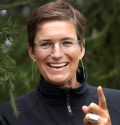
Ellen Hambro
Ellen has held different positions in the Ministry of Climate and Environment and in the Ministry of Food and Agriculture. She was Director General in the Norwegian Pollution Control Authority before she became Director General in the Norwegian Management Agency in 2013.
Conference coordinator

Anne Martinussen
Anne works as a senior adviser at the Norwegian Environment Agency, primarily with international environmental agreements and conventions, such as the CBD. She is also involved in IPBES and UNEP-work, as well as bilateral collaboration within biodiversity and development. She was previously with the UNDP / UN-REDD initiative, WWF and the Rainforest Foundation Norway.
Conference secretariat

Kristin Sundal
Kristin works at the Norwegian Environment Agency, where she is an Executive Officer in the Nature Management Department. She loves the outdoor life and she is happiest on a mountain or a horse.

Ingeborg Einum
Ingeborg works in the Conference Secratariat, mostly with country participants. She has formerly worked for many years in the Norwegian Environment Agency, but today works as librarian in the municipality of Tydal.
Conference rapporteur
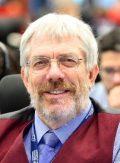
Jerry Harrison
Jerry works at the UN Environment World Conservation Monitoring Centre (UNEP-WCMC), where he is a Principal Technical Specialist working on international conventions and policy support. In recent years, Jerry’s work has focused on CBD and IPBES, and on opportunities for increased coherence in the implementation of international agreements and processes.
Interactive sessions team
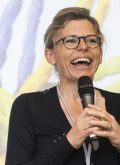
Natasha Walker
Natasha is program facilitator for the conference, in particular for the interactive elements and the interactive sessions 3, 6 and 9. Natasha is an expert for communication, focussing on facilitation, participation and designing complex dialogue processes. Her work results in effective strategy implementation, sustainable change and smart organisational development. She has her own company, working globally from her base in Heidelberg, Germany.

Daniela Guarás
Daniela works at the UN Environment World Conservation Monitoring Centre (UNEP-WCMC), leading and contributing to the work on multilateral agreements and intergovernmental processes such as the Convention on Biological Diversity and IPBES. Before joining UNEP-WCMC in 2015, she worked as policy advisor in international environmental issues at the Ministry of Agriculture of Argentina.

Andreas B. Schei
Andreas works at the Norwegian Environment Agency on international biodiversity agreements and conventions. He is currently the national focal point for CBD SBSTTA, the Bern Convention and the Polar Bear Agreement.
Communications and media team
Dag Stian Husby
Hege Husby Talsnes
Øyunn Wold
Tore Høyland
Agency management

Ellen Hambro
Ellen has held different positions in the Ministry of Climate and Environment and in the Ministry of Food and Agriculture. She was Director General in the Norwegian Pollution Control Authority before she became Director General in the Norwegian Management Agency in 2013.

Ivar Myklebust
Ivar is head of the Nature Management Department. This department is responsible for protected areas, threatened biodiversity, international biodiversity co-operation (including CBD and IPBES), wildlife management, outdoor recreation and legal issues related to biodiversity. The IPBES Technical Support Unit on Capacity-building (TSU) is administratively linked to the department. Ivar was Director General for the Norwegian Biodiversity Information Centre (Artsdatabanken) from 2005 to 2017.

Aina Holst
Aina works at the Norwegian Environment Agency, where she is head of the Threatened Biodiversity Section working on international conventions (CBD, CMS, Bern Convention), IPBES, bilateral co-operation and national management of threatened species and habitats, and cultural landscapes.
Ministry liaison

Marie Haraldstad
Marie works at the Norwegian Ministry of Climate and Environment, where she is a senior adviser at the department of Nature Management. Marie is the National Focal Point for the Convention on Biological Diversity (CBD), and is also involved in the implementation and follow up of the Sustainable Development Goals (SDGs). Marie has previously worked with UNEP and the Climate Convention (UNFCCC).
